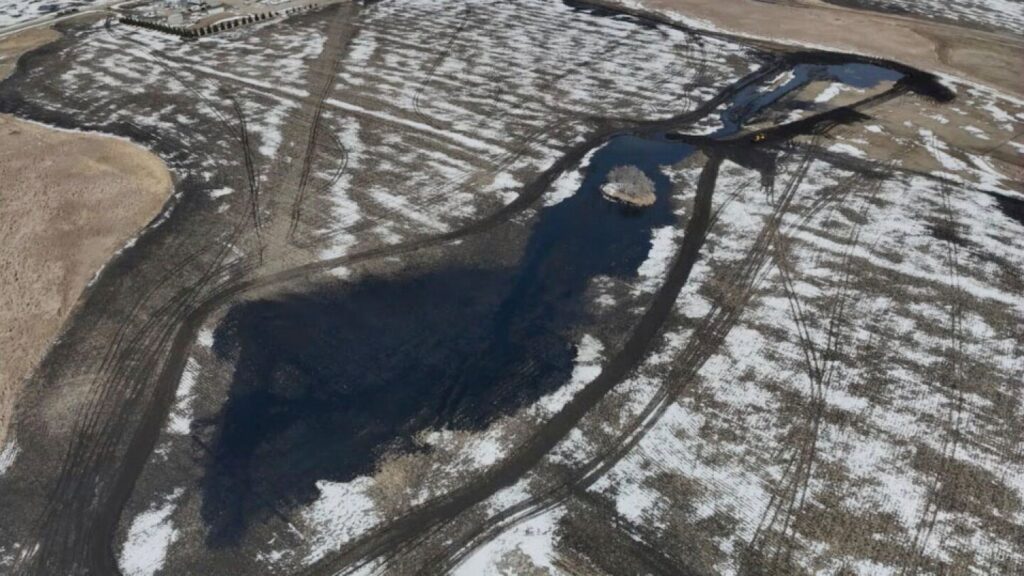BISMARCK, N.D. (AP) — The operator of the Keystone oil pipeline said it planned to restart the system Monday after a spill onto farmland in North Dakota last week shut down the line.
South Bow said it’s watching inclement weather conditions before beginning “a carefully controlled restart” that will include 24/7 monitoring, reduced operating pressures, cleanup of the site and compliance with federal regulators’ requirements. The company said it has finished all repairs, inspections and testing at the spill site.
South Bow said the federal Pipeline and Hazardous Materials Safety Administration signed off on its plans to repair and restart the line. The Associated Press emailed the agency for comment. The company also said it will put certain pressure restrictions on the pipeline’s Canadian sections, and has shared those details with Canadian regulators.
South Bow’s update did not mention a cause of the spill, though the company said it would share investigation findings when available. An employee heard a “mechanical bang” and shut down the pipeline within two minutes, a state spill response official previously said.
The spill is estimated at 3,500 barrels, or 147000 gallons. Vacuum trucks had recovered 1,170 barrels of crude oil, or 49140 gallons, as of early Friday, according to PHMSA.
The spill occurred in a field north of Fort Ransom, North Dakota, a tiny town in a forested area known for scenic views and outdoor recreation.
The 2,689-mile (4,327 kilometers) Keystone Pipeline carries crude oil from Alberta, Canada, to refineries in Illinois, Oklahoma and Texas.
The pipeline has been shut down from Alberta to points in Illinois and a liquid tank terminal Oklahoma, though the line remained open between Oklahoma and Texas’ Gulf Coast, according to a map from South Bow.
Lower oil prices due to tariff issues helped mute challenges from the pipeline shutdown on gas prices, though diesel prices could still inch up, said Ramanan Krishnamoorti, vice president for energy and innovation at the University of Houston.
Gas prices have fallen in almost every state in the last week due to the oil price drop resulting from the tariff and trade war concerns, said Patrick De Haan, head of petroleum analysis for GasBuddy, which tracks gas prices.
“I wouldn’t have expected this to really have much of an impact anyway, but with oil prices actively having plummeted over the last week, yes, I would say that the decline was more than offset,” he said.
Read the full article here


